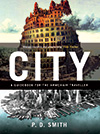Stay calm
03 October 2008 | atomic bomb, cold war, H-bomb, nuclear weapons | Post a comment
“This is the Wartime Broadcasting Service. This country has been attacked with nuclear weapons. Communications have been severely disrupted, and the number of casualties and the extent of the damage are not yet known. We shall bring you further information as soon as possible. Meanwhile, stay tuned to this wavelength, stay calm and stay in your homes.”
These are the words people would have heard on their radios in Britain following a nuclear attack – that is if they were still alive. The chilling script of this broadcast, written in the 1970s, has just been released by the National Archives.
In 1955 the British government asked a top civil servant to assess the scale of the threat posed by a nuclear attack. The Strath Report, as it is known, was declassified in 2002. It makes grim reading.
Strath estimated that a “successful night attack” on Britain’s major cities with ten hydrogen bombs would kill at least twelve million people and seriously injure four million more – a third of Britain’s population. Such an attack was equivalent to dropping 100 million tons of high explosive. This was, he said, “45 times as great as the total tonnage of bombs delivered by the Allies over Germany, Italy, and occupied France throughout the whole of the last war”.
Strath spelled out to his political masters in dry and matter-of-fact language the utter horror that every person in the land might have to face. “Hydrogen bomb war would be total war in a sense not hitherto conceived. The entire nation would be in the front line.”
In many of the bombed areas, there would be a total breakdown of civil order. Chaos would reign. “The household would become the unit of survival,” said Strath. But even those sheltering in their homes would be at risk from radiation and fallout. Up to 50 miles from an explosion, people would receive such heavy doses of radiation that, if they survived, they would be ill for weeks. For a thousand square miles around each bomb it would be “suicidal” even to venture outside.
“Morale,” concluded William Strath with breathtaking understatement, “would be very low.”
In this BBC statement that has just been released the message is clear: “stay calm and stay in your homes”. Or, as Lance Corporal Jack Jones might have said in Dad’s Army, “Don’t panic!” Stay indoors, switch off your gas, don’t use water for flushing the toilet, and ration your food, “because it may have to last for 14 days or more.”
There is though one sentence that seems to hint at the appalling scale of the disaster that has befallen the country and the world: “Remember there is nothing to be gained by trying to get away.” Indeed. Quite apart from the invisible fallout blowing on the wind, where would you go?
You can download the full text of the statement on the BBC website.
“Stay tuned to this wavelength, but switch your radios off now to save your batteries until we come on the air again. That is the end of this broadcast.”

